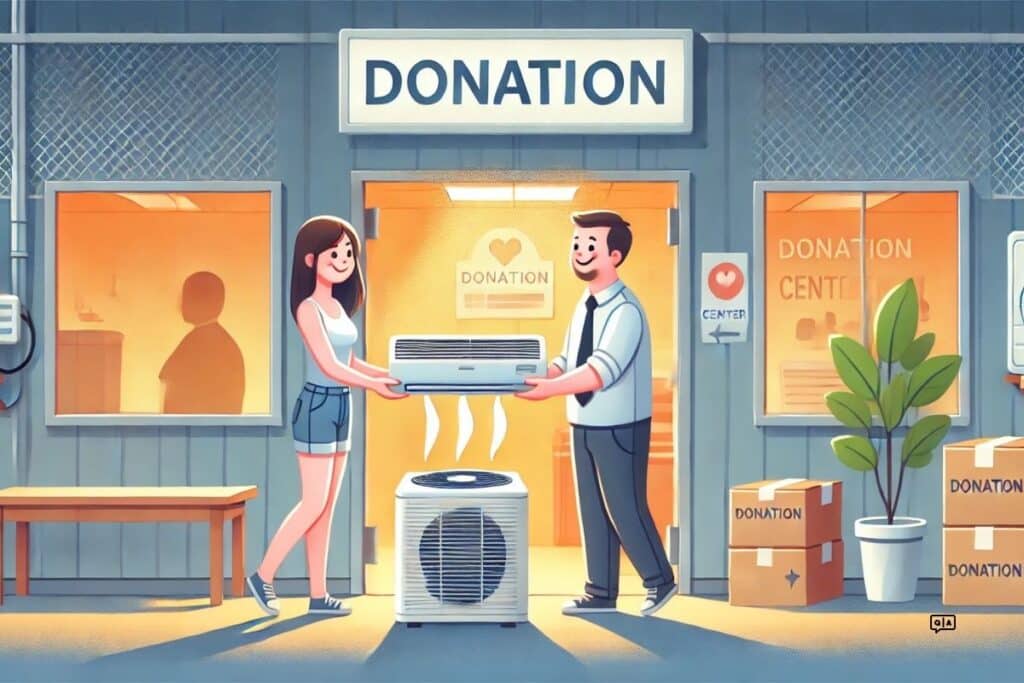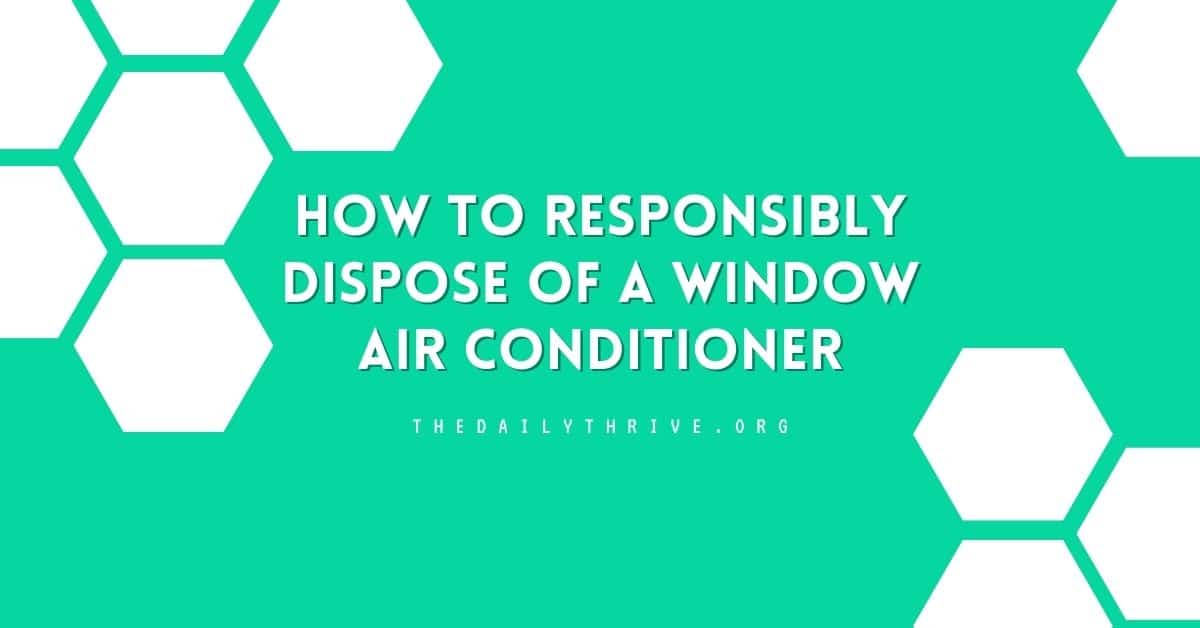Disposing of a window air conditioner requires special attention due to the presence of refrigerants and other materials that can harm the environment if not handled properly. Window AC units contain refrigerants like hydrofluorocarbons (HFCs), potent greenhouse gases, and metals and plastics that should be recycled rather than left in landfills. Below is a comprehensive guide on responsibly disposing of your window air conditioner.
Why Proper Disposal is Important?
Window air conditioners contain components that can have significant environmental impacts if disposed of improperly. Refrigerants like HFCs contribute to greenhouse gas emissions when released into the atmosphere, and other components, such as metals and plastics, take up valuable landfill space and can leach harmful chemicals into the soil.
Proper disposal methods help prevent environmental damage and comply with local regulations on electronic waste.
If you’re looking to dispose of your window air conditioner, consider these effective options to ensure a responsible and hassle-free process.
1. Contact Local Waste Management Services
One of the first steps in disposing of your air conditioner is to contact your local waste management services.
In many areas, city or municipal waste management departments provide guidelines or specific services for disposing of electronic waste, including appliances like air conditioners. They may have designated drop-off points for large appliances or offer scheduled pick-up services.
Check with your local sanitation or waste management department to find the options available in your area.
2. Use Authorized Recycling Centers
Many recycling centers accept electronic waste, including window air conditioners, and are equipped to safely handle the refrigerants and other materials in these units. Look for certified recycling facilities in your area specializing in electronics and appliances. These facilities follow stringent environmental regulations and are prepared to recycle the various components of the air conditioner, including metals and plastics, in an environmentally responsible way.
Authorized recycling centers ensure the unit’s refrigerants are properly removed, and the remaining materials are processed to reduce waste and minimize environmental impact.
3. Explore Manufacturer Take-Back Programs
Some air conditioner manufacturers offer take-back or recycling programs that accept old units for responsible disposal. Check with your air conditioner’s manufacturer to see if they offer such a program in your area. Many manufacturers (like Trane and Carrier) work with certified recycling facilities to handle the proper disposal of refrigerants and other materials.
Manufacturer take-back programs are particularly useful because they often ensure that the unit is handled responsibly and at no cost to you. This is an easy way to dispose of the unit while knowing that it will be recycled in an environmentally friendly manner.
4. Consider Donating Functional Units
If your window air conditioner is still in good working condition, consider donating it to a charity, community center, or school. Many local organizations welcome appliance donations, especially during warmer months when cooling resources are in high demand. Donating a functional unit extends the appliance’s life and helps those in need by providing them with a low-cost or no-cost cooling solution.

Charities like Goodwill, Habitat for Humanity, or local shelters may accept working appliances. Call the organization first to confirm they can accept and use the unit.
5. Hire Professional Disposal Services
Professional waste removal services offer convenient and often comprehensive options for disposing of window air conditioners. These companies typically provide pick-up services, saving you the hassle of transporting the unit yourself. Many are equipped to safely remove refrigerants and handle the recycling of other materials, ensuring that your AC unit is disposed of according to environmental regulations.
Look for companies that specialize in electronic waste disposal or have certifications in handling refrigerants and electronic recycling. This option can be particularly convenient if you have multiple appliances to dispose of or if local recycling centers are unavailable.
Before you take your air conditioner to a recycling center or arrange for a pickup, there are a few preparatory steps you should take:
- Remove Accessories: Detach any accessories, such as filters, remote controls, or mounting brackets, which may need to be recycled separately.
- Drain Refrigerant: To comply with environmental laws and ensure safety, have a licensed HVAC technician drain the refrigerant from the unit before disposal. Professionals must remove refrigerants to prevent release into the environment.
- Disconnect Electrical Connections: Remove all electrical connections and tape down any loose wires to prevent electrical hazards.
Always Follow Local Regulations
When disposing of an air conditioner, following local laws and regulations regarding electronic waste and refrigerant disposal is essential. Many regions have strict rules to ensure environmentally responsible disposal of items containing refrigerants. Some areas may even have fines for improper disposal, so confirming the process with your local government is wise.
Adhering to local regulations ensures that your air conditioner’s disposal process protects the environment and the community.
Instead of just tossing it in the trash, it’s best to think about the environment and how to handle it safely. You can check in with your local waste management for guidance or look for certified recycling centers that can properly take care of it.
If your unit is still working, consider donating it to someone who might need it, or see if the manufacturer has a take-back program. If you’re unsure, hiring a professional disposal service can make the process easy and worry-free.
By following these steps, you’ll ensure that your window air conditioner is disposed of to benefit the environment and your community. Let’s help keep our planet clean while giving your old window AC unit a proper send-off!






